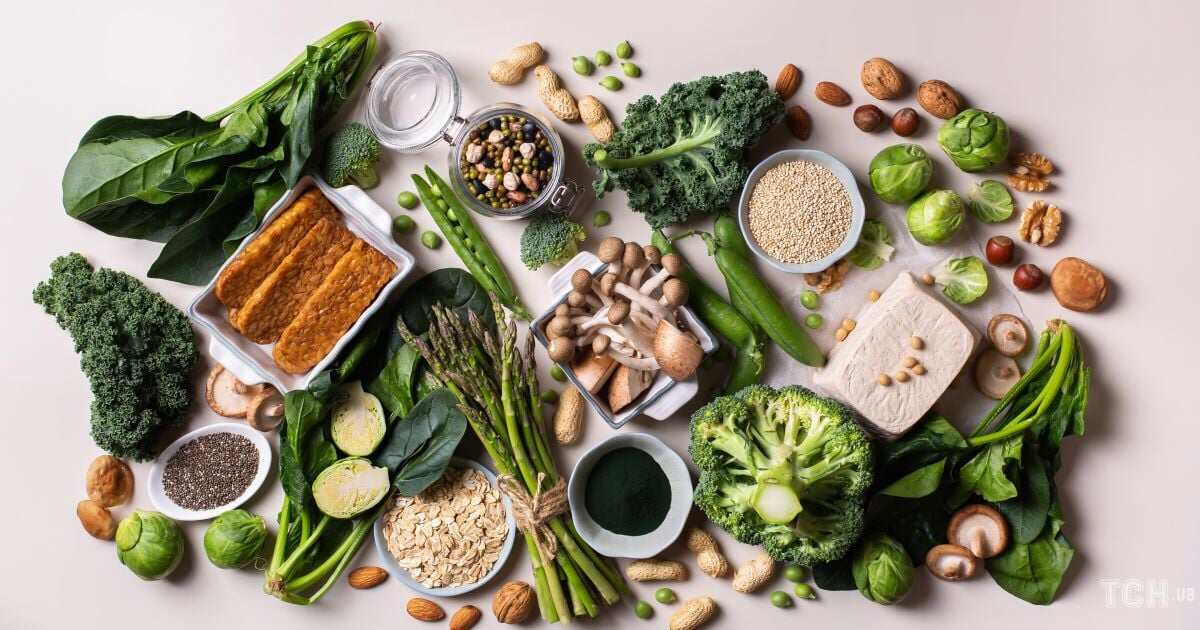10 Health Benefits of Mango originally from India and Southeast Asia, have been grown and enjoyed for more than 4,000 years. Over time, hundreds of different varieties have emerged, each offering its own unique taste, shape, size, and color.
Not only are mangoes delicious and refreshing, but they also come packed with a range of nutrients. They are rich in vitamins, antioxidants, and fiber, making them a great addition to a healthy diet. Whether you like them sweet or slightly tangy, there’s a mango out there for everyone.
10 Health Benefits of Mango provide several health benefits. From boosting your immune system to improving digestion, they are a powerhouse of goodness. Plus, they’re super versatile – you can enjoy them fresh, in smoothies, salads, or even in savory dishes.
you can also read about AGE:XDXJCXL_4OI= Ice Spice: All You Need to Know About This New Trend
Packed with nutrients
One of the most impressive things about mangoes is their high vitamin C content. Just one cup (165 grams) of fresh mango gives you almost 67% of your daily recommended intake of this important vitamin. Vitamin C helps boost your immune system, supports your body in absorbing iron, and plays a key role in cell growth and repair.
10 Health Benefits of Mango are also a great source of copper and folate, two essential minerals. These nutrients are especially important for pregnant women, as they promote healthy fetal growth and development. Copper supports various bodily functions, while folate is crucial for preventing birth defects.
10 Health Benefits of Mango mangoes offer a tasty and nutritious way to support your health. Whether you’re looking for immune support, improved iron absorption, or essential nutrients for pregnancy, adding mango to your diet is a delicious way to nourish your body.
Low in calories

A cup of fresh mango (165 grams) has fewer than 100 calories, making it a low-calorie food. This means you can eat a decent portion of mango without taking in too many calories, which makes it a great option if you’re watching your calorie intake.
Like many fresh fruits and vegetables, mango has a low calorie density. One study even suggests that starting your meal with fresh fruit, like mango, might help prevent overeating later on. This makes it a smart and healthy choice before or during meals.
10 Health Benefits of Mango is a different story. Just one cup (160 grams) of dried mango contains 510 calories and 106 grams of sugar. While it’s still packed with nutrients, it’s much higher in calories and sugar compared to fresh mango. So, it’s best to enjoy dried mango in moderation.
May help prevent diabetes
Fresh mango contains more than 22 grams of natural sugar per cup (165 grams), which is higher than some other fruits. Because of this, you might think that people with diabetes or those trying to limit sugar should avoid it.
However, there’s no evidence to suggest that eating fresh mango causes diabetes or is harmful to people with this condition. In fact, studies have shown that eating more fresh fruit, in general, is linked to a lower risk of developing diabetes.
Although not much research focuses specifically on mango and diabetes, one study found that people who added 10 grams of freeze-dried mango to their diet daily for 12 weeks saw improvements in their blood sugar levels. Another study suggests that fruits high in vitamin C and carotenoids, like mango, may help prevent diabetes, though more research is needed.
10 Health Benefits of Mango is naturally high in sugar, eating too much at once can cause blood sugar spikes. It’s best to enjoy mango in moderation, sticking to about 1 cup (165 grams) per serving. Pairing it with fiber-rich or protein-rich foods may help keep your blood sugar more stable.
High in healthy plant compounds
Antioxidants are crucial for protecting your cells from damage caused by free radicals, which are highly reactive molecules. If left unchecked, free radicals can harm your cells and lead to various health issues.
Research shows that free radical damage is linked to aging and chronic diseases. This is why antioxidants are so important—they help minimize this damage and support overall health.
One antioxidant found in mango, called 10 Health Benefits of Mango, has gained special attention. Often referred to as a 10 Health Benefits of Mango is known for its powerful effects. Studies in test tubes and animals suggest that 10 Health Benefits of Mango may help protect against free radical damage associated with cancers, diabetes, and other diseases.
Contains immune-boosting nutrients

Mango is packed with nutrients that can give your immune system a boost. Just one cup (165 grams) of mango provides about 10% of your daily vitamin A needs. This vitamin is essential for keeping your immune system strong, and not getting enough of it can increase your risk of infections.
In addition to vitamin A, mango is also rich in vitamin C. One cup gives you almost 75% of your daily vitamin C requirement. This vitamin helps your body produce white blood cells that fight off infections, improves how these cells function, and strengthens your skin’s defense barriers.
Mango also contains other immune-supporting nutrients like copper, folate, vitamin E, and several B vitamins, all of which play a role in keeping your body healthy and resilient.
10 Health Benefits of Mango Supports heart health
10 Health Benefits of Mango several nutrients that can help keep your heart healthy. For example, it provides magnesium and potassium, which are both important for maintaining proper blood flow. These minerals help relax your blood vessels, which can lead to lower blood pressure.
Mango also contains a powerful antioxidant called 10 Health Benefits of Mango which has been shown to support heart health. Studies in animals suggest that 10 Health Benefits of Mango may protect heart cells from inflammation, oxidative stress, and even cell damage.
Additionally, 10 Health Benefits of Mango may help lower cholesterol, triglycerides, and free fatty acid levels in the blood, all of which contribute to heart health. While these findings are promising, more research is needed to confirm these benefits in humans.
May improve digestive health
Digestive enzymes help break down large food molecules, making it easier for your body to absorb nutrients. In mangoes, amylase enzymes break down complex carbohydrates into simpler sugars like glucose and maltose. These enzymes are more active in ripe 10 Health Benefits of Mango which is why they taste sweeter than unripe ones.
Mangoes are also high in water and dietary fiber, which can help with digestive issues like constipation and diarrhea. In fact, a study found that people with chronic constipation experienced better relief when eating mango daily compared to taking a fiber supplement.
This suggests that mangoes offer additional digestive health benefits beyond just fiber, though more research is needed to understand exactly how they work.
May support eye health
Mangoes are packed with nutrients that support eye health. These nutrients are found in high concentrations in the retina, the part of your eye that converts light into signals for your brain.10 Health Benefits of Mango. They are particularly concentrated in the macula, the center of the retina.
In the retina, lutein and zeaxanthin act like a natural sunblock, absorbing excess light and protecting your eyes from harmful blue light. This helps prevent potential damage and supports overall eye health.
10 Health Benefits of Mango. Mangoes are also rich in vitamin A, which is crucial for maintaining good vision. Without enough vitamin A in your diet, you might experience dry eyes or nighttime blindness. In severe cases, a deficiency can lead to more serious issues like corneal scarring.
May help lower your risk of certain cancers
They contain antioxidants like lutein and zeaxanthin, which play an important role in your vision. These antioxidants are concentrated in the retina, the part of your eye that turns light into signals for your brain. They are especially focused in the macula, the central area of the retina.
In the retina, lutein and zeaxanthin act like a natural filter, absorbing excess light and protecting your eyes from harmful blue light. This helps to shield your eyes from potential damage and supports overall eye health.
Mangoes also provide a good amount of vitamin A, which is essential for maintaining healthy vision. Without enough vitamin A, you might experience issues like dry eyes or difficulty seeing at night. In severe cases, a lack of vitamin A can lead to more serious problems, such as corneal scarring.
Versatile and easy to add to your diet

10 Health Benefits of Mango. Health Benefits of Mango with the skin still on, start by making long vertical slices about 1/4 inch (6 mm) away from the center to separate the flesh from the pit. Then, cut a grid pattern into the flesh of each slice, being careful not to cut through the skin.
Here are a few delicious ways to enjoy mango: You can blend it into a smoothie for a tropical twist, dice it up and mix it into a salsa for some added sweetness, or toss it into a summer salad for extra flavor. Sliced mango also pairs well with other tropical fruits or can be added to a quinoa salad for a refreshing boost.
For something more creative, try adding mango to Greek yogurt or oatmeal, or even top burgers or seafood with grilled mango for a sweet and savory combination. Keep in mind that mango is naturally sweet and adds a burst of flavor to any dish.
FAQ’S
What are the main nutrients found in mango?
Mango is rich in vitamins like vitamin C and A, as well as minerals like potassium, magnesium, and copper. It also contains antioxidants such as lutein, zeaxanthin, and mangiferin, and is a good source of dietary fiber.
Can eating mango improve digestion?
Yes, mango contains digestive enzymes like amylase, which help break down carbohydrates, and its fiber and water content can aid with digestive issues like constipation and diarrhea.
Is mango good for heart health?
Mango contains nutrients like potassium and magnesium that support healthy blood pressure. Its antioxidant, mangiferin, has been shown in studies to protect heart cells and potentially lower cholesterol and triglyceride levels.
Can mango help boost the immune system?
Yes, mango is rich in vitamin C, which is vital for immune function. It also provides vitamin A, copper, and other nutrients that contribute to a healthy immune system.
Does mango benefit eye health?
Mango contains antioxidants like lutein and zeaxanthin, which are important for eye health. These nutrients protect the retina and may help guard against blue light and vision-related issues.
CONCLUSION
Mango is a nutrient-rich fruit that offers a wide range of health benefits. Packed with vitamins like A and C, it supports a healthy immune system, improves digestion, and promotes heart health. 10 Health Benefits of Mango.
Its high antioxidant content, including mangiferin, lutein, and zeaxanthin, provides protection against cell damage, supports eye health, and may help reduce the risk of chronic diseases like diabetes and heart disease.
In addition to its health benefits, mango is incredibly versatile and can be easily added to your diet in various ways. Whether you enjoy it fresh, in smoothies, salads, or grilled with savory dishes, mango’s natural sweetness and nutritional power make it a delicious and healthy addition to your meals.











